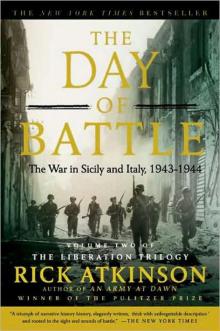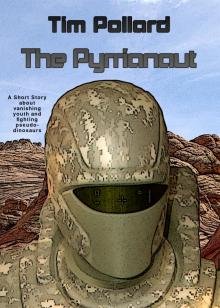The Day of Battle


Author: Rick Atkinson
Category: Nonfiction
Published: 2007
Series:
View: 448
Read OnlineAmazon.com ReviewAmazon Best of the Month, November 2007: Topping a Pulitzer Prize-winning effort is tough; finding originality in a World War II narrative is even tougher. Yet Rick Atkinson accomplishes both with The Day of Battle: The War in Sicily and Italy, 1943-1944. His previous work, An Army at Dawn, won the 2003 Pulitzer in history, but Atkinson has managed to set the bar even higher with his second installment in "The Liberation Trilogy." He descends upon each battlefield with rich historical perspective, tactical analysis, and chilling frontline observations. Cocksure Hollywood bravado is sparse, as Atkinson depicts soldiers fighting for honor, not glory. "We did it because we could not bear the shame of being less than the man beside us," explains one soldier's diary. "We fought because he fought; we died because he died." The result is an incredible portrayal of the courage, sorrow, and determination that came to define our greatest generation. --Dave CallananFrom Publishers WeeklyStarred Review. Atkinson surpasses his Pulitzer-winning An Army at Dawn in this empathetic, perceptive analysis of the second stage in the U.S. Army's grassroots development from well-intentioned amateurs to the most formidable fighting force of World War II. The battles in Sicily and Italy developed the combat effectiveness and the emotional hardness of a U.S. Army increasingly constrained to bear the brunt of the Western allies' war effort, he argues. Demanding terrain, harsh climate and a formidable opponent confirmed the lesson of North Africa: the only way home was through the Germans: kill or be killed. Atkinson is pitilessly accurate demonstrating the errors and misjudgments of senior officers, Field Marshal Sir Harold Alexander, Gen. Mark Clark and their subordinates commanding corps and divisions. The price was paid in blood by the men at the sharp end: British and French, Indians and North Africans—above all, Americans. All that remained of the crew of one burned-out tank were the fillings of their teeth, for one example. The Mediterranean campaign is frequently dismissed by soldiers and scholars as a distraction from the essential objective of invading northern Europe. Atkinson makes a convincing case that it played a decisive role in breaking German power, forcing the Wehrmacht onto a defensive it could never abandon. (Oct. 2) Copyright © Reed Business Information, a division of Reed Elsevier Inc. All rights reserved.
 The Kingfisher Secret
The Kingfisher Secret The Pyrrianaut
The Pyrrianaut Still Wind, Forgotten Days
Still Wind, Forgotten Days Compromising Mr. Darcy: A Pride and Prejudice Variation Anthology
Compromising Mr. Darcy: A Pride and Prejudice Variation Anthology Letters to a Young Lawer
Letters to a Young Lawer Under the Wave at Waimea
Under the Wave at Waimea His Buttercup (The May Flowers Series)
His Buttercup (The May Flowers Series) Kestrel's Eye
Kestrel's Eye